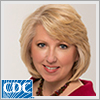Cancer and Women
Every year, cancer claims the lives of more than a quarter of a million women in America. You can lower your cancer risk in several ways.
What You Can Do
- Don’t smoke, and avoid secondhand smoke. More women in the United States die from lung cancer than any other kind of cancer, and cigarette smoking causes most cases.
- Get recommended screening tests for breast, cervical, colorectal, and lung cancer. Screening tests are the best way to find these cancers early, when they are easier to treat. Lung cancer screening is recommended only for certain people who are at high risk.
- Protect your skin from the sun and avoid indoor tanning. Skin cancer is the most common cancer in the United States. Most cases of melanoma, the deadliest kind of skin cancer, are caused by exposure to ultraviolet (UV) light from the sun and indoor tanning devices.
- Stay active and eat healthfully. Making healthy choices like eating a diet rich in fruits and vegetables, getting regular physical activity, and limiting alcohol consumption can help lower your risk for several kinds of cancer.
Fast Facts About Cancer and Women
- The most common kinds of cancer among women in the U.S. are skin cancer, breast cancer, lung cancer, colorectal cancer, and uterine cancer.
- The human papillomavirus (HPV) vaccine is available for girls and women who are 9 to 26 years old. It protects against the types of HPV that most often cause cervical and other kinds of cancer.
- Most breast cancers are found in women who are 50 years old or older, but breast cancer also affects younger women.
Featured Resources

“I learned the hard way: a tan is not a sign of health,” writes melanoma survivor Sharon McKenna.

This infographic lists steps you can take to lower your risk for breast and ovarian cancer.

Listen as two friends—one a doctor—talk about cervical cancer symptoms and screening tests.

Our “cheat sheet” [PDF-106KB] summarizes the cancer screening tests most women need.

Actress Cote de Pablo discusses her cervical cancer scare and has a message for women in this video.

Test your Inside Knowledge about gynecologic cancers with this quiz!

In this video, Meryl Streep urges adults who are 50 or older to get screened for colorectal cancer.

Our breast cancer fact sheet [PDF-234KB] lists screening recommendations, risk factors, and symptoms.

A non-smoker shares her story about being diagnosed with lung cancer in this podcast.
- Page last reviewed: May 8, 2017
- Page last updated: May 8, 2017
- Content source:
- Maintained By:


 ShareCompartir
ShareCompartir
